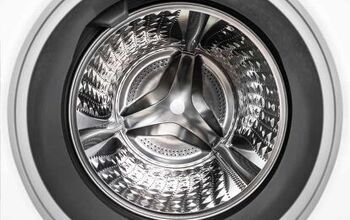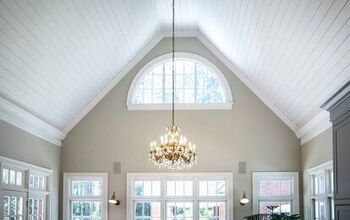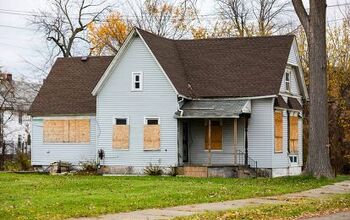What To Consider Before Buying A Vacation Home

Buying a vacation home is a huge step that requires a lot of thought and preparation. You can’t make this decision on a whim, as it carries many financial implications that can be quite the undertaking. That’s why we put together a thorough list of what to consider before buying a vacation home.
Research the location before buying a vacation home to understand the appreciation rate and weather-related hazards. It’s also important to research the cost of utilities, property taxes, and renovations to customize your vacation home. Consider whether you want to rent your vacation home out to earn extra income and hire a property manager to help.
Owning a vacation home is expensive if you’re already paying a mortgage on your primary home. That’s why it’s important to talk to a financial advisor and realtor before making any decisions. Follow along as we explore what to consider before buying a vacation home.
Nine Things To Consider Before Buying A Vacation Home
1. Location
It’s no secret that location is everything in real estate. That’s just as true for a vacation home as it is for your primary house. You must consider the location of your future vacation home, as it will affect many things, such as resale value and safety.
Of course, most people pick a vacation home in areas with great weather and beautiful surroundings. However, you must carefully consider the market values of similar homes in that area. For example, buying a vacation home in an area where property values are projected to decline may not be worth it.
Some people don’t think of a vacation home as an investment, and that’s fine. However, you or someone in your life may eventually sell the house and the last thing you want is to take a huge loss. Speak to a realtor and research local property values before you pull the trigger and buy a vacation home.
2. Hazards
Many people vacation in beautiful areas that also sadly have weather-related hazards. For example, popular vacation states like Florida are prone to devastating hurricanes. Naturally, hurricanes can cause dangerous and expensive damage that destroy homes.
However, that doesn’t mean you shouldn’t buy a vacation home in an area with weather hazards. Instead, you should think carefully about how well-protected your future vacation home is. For example, a coastal home in Florida is more vulnerable to devastating hurricane damage than one that is further inland.
Do some research and speak to locals to see how their homes hold up during extreme weather events. It’s also a great idea to look into the cost of tornado-proofing the home and securing the roof for hurricanes. This can ultimately help you protect your vacation home and save a fortune on repairs.
3. Maintenance Costs
Despite only living at a vacation home part-time, you must still maintain it year-round. This is true whether you rent your home out for extra income or simply visit on your vacation time. You must consider whether you can justify maintenance costs while also maintaining your primary home.
That’s because you must pay for at least one service or contractor to maintain your property while you’re gone. Some people hire property managers to take care of their vacation homes year-round. Otherwise, you’ll return to a vacation property that is overgrown and in bad shape.
Many people spend between 1% and 4% of the value of their property on maintenance per year. For example, in some cases, it can cost at least $4,000 per year to maintain a $400,000 vacation home. Crunch the numbers and make sure you can justify this cost before buying a vacation home.
4. Distance
You must consider the distance between your primary home and the vacation home you have your eye on. This is important for many reasons, but travel costs are among the most important. After all, owning a vacation home on the opposite coast means it will cost a small fortune to visit it.
That’s especially true if you must fly to your vacation home each time you visit. Flights and gas are both expensive, especially for long-distance trips. Think about whether you can justify travel costs before buying a vacation home.
5. Renovations
The price isn’t the only cost you’ll incur when you buy a vacation home. That’s especially true if you plan to renovate and customize the house. Renovations are often worthwhile, as they can help increase home's value.
However, they can temporarily strain your budget and make you question whether or not it’s a good idea. Carefully consider the cost of renovations and add it to your overall budget before buying a vacation home. It’s also a great idea to tackle renovations one at a time over the years to avoid overspending in a short period.
6. Goals
Is your goal to rent the vacation home out or enjoy it yourself? Your plans for the vacation home can ultimately help determine whether it’s worth buying a particular house. For example, you must pick a location that is universally appealing if you plan to rent the home out.
Doing so can help you recoup your investment much sooner than a vacation home in a remote location. However, you must only consider your own goals if you plan to rent the home out. Do some research about popular vacation spots if your goal is to generate rental income.
That way, you can invest in a home in a popular vacation spot to ensure it doesn’t sit vacant. Of course, in many cases, renting the home out means you must also hire a property manager. However, many people consider it worth the cost in high-demand areas, as you can make a fortune.
7. Taxes
Buying a vacation home can affect your taxes in a few ways. The biggest way is that you must pay additional property taxes. This can add up quickly if you already spend a fortune on property taxes at your primary home.
Property tax rates vary between states, so it’s a great idea to look into tax rates in the state where you plan on buying a vacation home. From there, you must budget accordingly to ensure you can justify the extra cost of property taxes. You must also consider the additional income tax if you plan to rent your vacation home out to earn money.
8. Fees And Bills
Owning two homes is quite expensive, but many people find the extra cost worthwhile. For example, you must pay double the cost of utility bills when you own two homes. Keep in mind that utility bills will still accumulate, even when your vacation home sits vacant.
Granted, the bills won’t be as high as they would be when you’re there. It’s also worth considering additional costs like Homeowners Association (HOA) fees. You can save yourself a lot of stress and heartache if you speak to a financial advisor and realtor before buying a vacation home.
9. Security
You must consider security whether you rent your vacation home or leave it vacant when you’re gone. Burglars often prey on vacant homes, as they appear vulnerable and easy to burglarize. Keep this in mind and invest in security cameras to monitor your vacation home at all times.
Security cameras are cheaper than ever, and you only need 2 to 6 of them depending on home size. It’s also a great idea to set up motion-activated lights to scare burglars away. Keep your valuable items out of sight of your windows.
Invest in a security alarm with a 24/7 monitoring service for your vacation home to gain peace of mind. You must also be careful about what you leave in the house if you rent it out to strangers. For example, you shouldn’t leave sentimental items, jewelry, and valuables in your home while strangers are present.
Summing It Up
Location is the most important thing to consider before buying a vacation home. You must also consider whether you can afford the extra bills, renovation costs, and property taxes. Consider your goals regarding keeping the home to yourself or renting it out to strangers to earn extra rental income.
Related Guides:

Nick Durante is a professional writer with a primary focus on home improvement. When he is not writing about home improvement or taking on projects around the house, he likes to read and create art. He is always looking towards the newest trends in home improvement.
More by Nick Durante










![The 10 Best Table Saws - [2022 Reviews & Buyer's Guide]](https://cdn-fastly.upgradedhome.com/media/2023/07/31/9070645/the-10-best-table-saws-2022-reviews-buyer-s-guide.jpg?size=350x220)
















